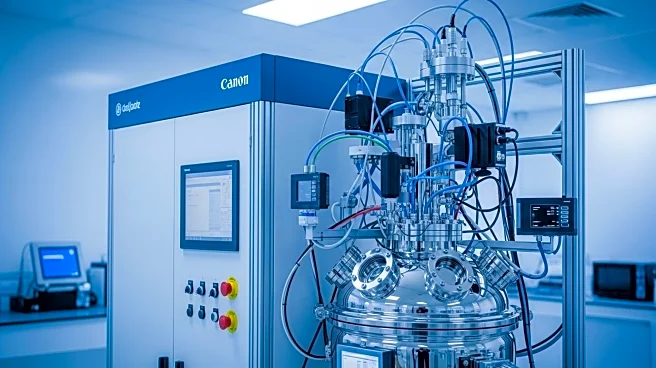What is the story about?
What's Happening?
The bioprocessing industry is moving towards unified platforms that integrate sensing, analysis, and control, enhancing process monitoring and control capabilities. These platforms aim to support automation, improve process control, and enable faster decision-making. By adopting standardized communication protocols, the industry seeks to achieve seamless connectivity among equipment from different vendors, facilitating vendor-agnostic interoperability and improving production efficiency.
Why It's Important?
The shift towards unified platforms in bioprocessing could revolutionize how complex biologics are developed, including cell and gene therapy and mRNA products. By enhancing process monitoring and control, these platforms may reduce the risks of process deviations and production delays, improving product quality and reducing costs. The integration of AI-linked sensors and model-based controls could further optimize bioprocessing, offering more efficient and scalable solutions for manufacturers.
What's Next?
Future developments may focus on refining these platforms and expanding their application to various bioprocessing technologies. The integration of AI and cloud computing could lead to new insights into process optimization and automation, improving production efficiency and product quality. Researchers may also explore the potential of these platforms in other areas, such as personalized medicine and regenerative therapies.
Beyond the Headlines
The advancement of unified platforms in bioprocessing exemplifies the potential of interdisciplinary collaboration in scientific research. By combining expertise in engineering, biology, and technology, the industry is developing solutions that could transform how complex biologics are produced. This approach may inspire similar efforts in other fields, fostering innovation and discovery.

















